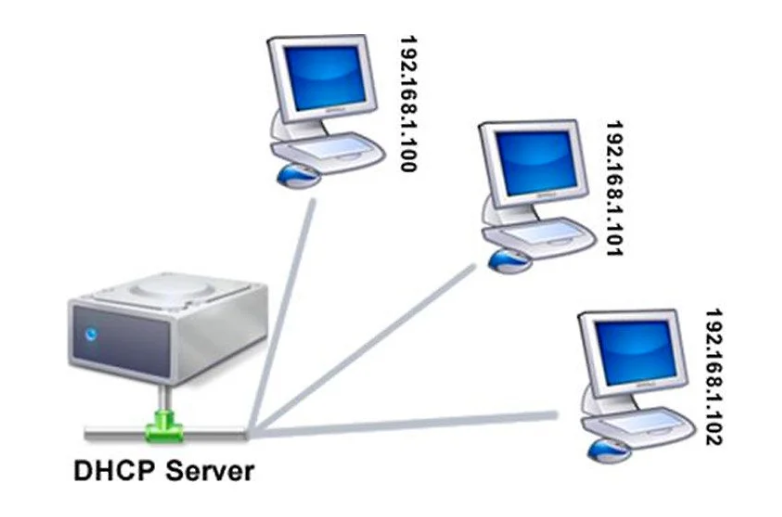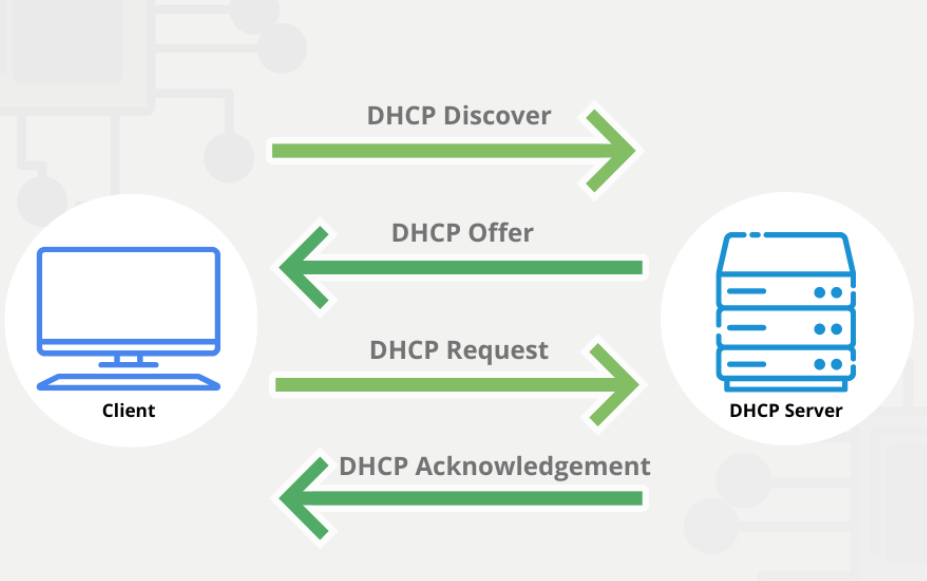Dynamic Host Configuration Protocol(DHCP) in Networking
 OLPU KRISHNAVENI
OLPU KRISHNAVENI*It is a network management protocol used in IP networks.
*It's primary function is to automatically assign IP addresses and other network configuration parameters (like subnet masks, default gateways, and DNS servers) to devices (clients) on a network, allowing them to communicate with each other devices on the network and the wider internet.

WORKING OF DHCP:
1.DHCP Discovery: When a device(client) connects to a network, it doesn't have an IP address. It sends out a DHCP Discover message to find a DHCP server. This message
is broadcasted to all devices on the local network.
2.DHCP Offer: The DHCP server receives the Discover message and responds with a DHCP offer message. This offer contains an available IP address and other network configuration details.
3.DHCP Request: The client receives the offer and, if it is acceptable, it responds with a DHCP request message, indicating that it wants to use the IP address provided by the DHCP server.
4.DHCP Acknowledgement: Finally, the DHCP server sends a DHCP Acknowledgement (ACK) message, confirming that the client can use the IP address. The server also records the assignment in its database to manage IP allocations.

FEATURES OF DHCP:
1.Dynamic IP Assignment: DHCP allows devices to join a network and automatically obtain an IP address, reducing the need for manual configuration.
2. Lease Time: IP addresses assigned by DHCP are typically leased for a specific period. When the lease(like agreement) expires, the client must renew the lease or obtain a new IP address.
3.Scope Management: DHCP servers manage a pool of IP addresses, known as a scope, from which they assign addresses to clients. Network administrators can define different scopes for different segments of the network.
4.Reduced IP conflicts(issues): By managing IP address assignment centrally, DHCP helps avoid IP conflicts, which can occur when multiple devices are manually assigned the same IP address.
APPLICATIONS OF DHCP:
1.Home Networks: DHCP is commonly used in home networks to assign IP addresses to devices like computers , smartphones, and smart home devices.
2.Enterprise Networks: Large organizations use DHCP to efficiently manage IP address assignment across many devices and subnets.
3.ISP Networks: Internet Service Providers(ISPs) use DHCP to assign IP addresses to customer's devices when they connect to the internet.
Subscribe to my newsletter
Read articles from OLPU KRISHNAVENI directly inside your inbox. Subscribe to the newsletter, and don't miss out.
Written by
